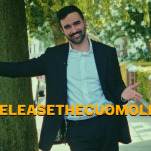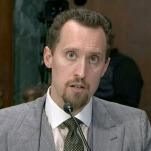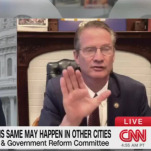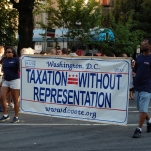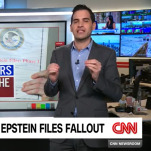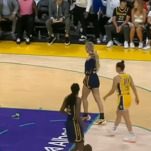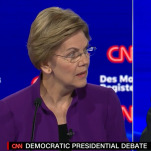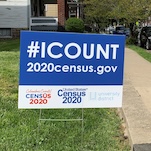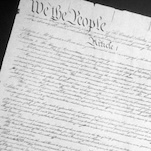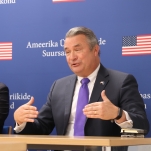The real lesson from the devastation at Sony Pictures
Over the weekend, Sony Pictures attempted to put its digital toothpaste back into its poorly secured tube. It sent a letter on Sunday to news organizations requesting that they cease reporting on the “confidential and privileged” documents stolen from the company and delete any “stolen information” in their possession. The letter from renowned attorney David Boies, first reported by the New York Times and put online by the Hollywood Reporter, contained no explicit legal threat but did say that Sony Pictures would hold those who refuse to comply “responsible for any damage or loss arising from such use or dissemination by you… [including] any loss of value of intellectual property and trade secrets.”
Sony Pictures is trying to staunch its information bleed. Last week it tried to do so technologically, reportedly launching ‘bad seed’ attacks on the torrents used to disseminate stolen files. Now it’s attempting to muzzle the press. Though it’s a tactic that can backfire, bringing a new cycle of stories about the company’s troubles, it was inevitable. The only surprising part of the letter was how long it took Sony Pictures to send it out, two weeks after the hack became public.
Journalists have the right to report on illegally obtained information, but a chorus of voices have started questioning the ethics of that reporting and its impact on the privacy of Sony Pictures’ employees and those they corresponded with by email. On Twitter, director Judd Apatow compared the publication of executives’ embarrassing emails to releasing Jennifer Lawrence’s nude photos. And in the op-ed section of the New York Times, producer and screenwriter Aaron Sorkin, whose name and emails have popped up in reports, called the media coverage “morally treasonous and spectacularly dishonorable,” arguing that journalists are giving “material aid to criminals” by assisting hackers in dismantling Sony Pictures’ reputation. “I know there’s juicy stuff in the emails and I know some of us have been insulted and I know there’s more to come,” The Newsroom creator writes. “No one’s private life can totally withstand public scrutiny.”
This is true, but it is also true that these are no longer ‘private lives,’ simply by virtue of having been made publicly available on the Internet by criminal hackers. Once information is loose in the world, we can hem and haw about what should be done with it, but unless Sony Pictures has some actual memory zappers left over from Men In Black, it is virtually impossible to make that information just disappear — even with a sternly worded letter from a preeminent attorney. Unlike the nude photos released by iCloud hackers earlier this year, the documents contain information about the inner workings of a public company that are relevant for civic discourse, including evidence of salary inequity, casual racism by Hollywood’s power brokers, and attempts by industry groups to enlist attorneys general to punish their enemies (namely Google).
-

-

-

-

-

-

-

-

-

-

-

-

-

-

-

-

-

-

-

-

-

-

-

-

-

-

-

-

-

-

-

-

-

-

-

-

-

-

-

-

-

-

-

-

-

-

-

-

-

-

-

-

-

-

-

-

-

-

-

-

-

-

-

-

-

-

-

-

-

-

-

-

-

-

-

-

-

-

-

-

-

-

-

-

-

-

-

-

-

-

-

-

-

-

-

-

-

-

-

-

-

-

-

-

-

-

-

-

















































































